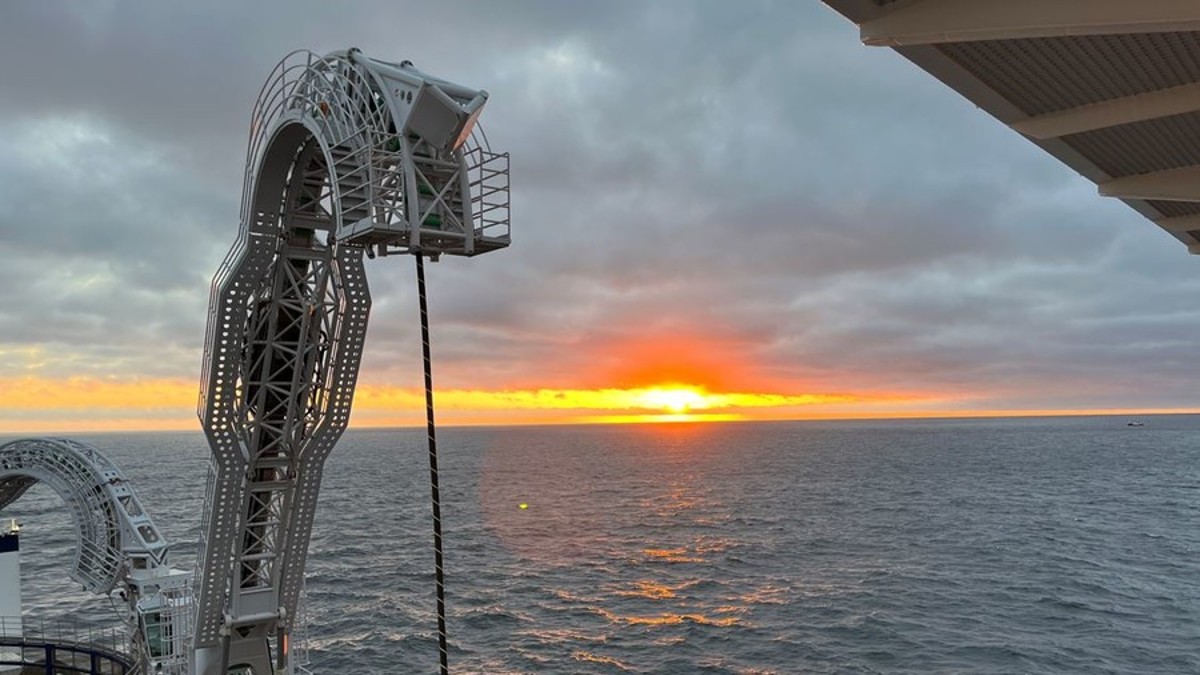
The world’s longest land and subsea interconnector – between the UK and Denmark – started commercial operations today.
The new Viking Link electricity interconnector has a capacity of 1.4 gigawatts (GW) and stretches for 475 miles under land and sea. It joins the Bicker Fen substation in Lincolnshire with the Revsing substation in southern Jutland, Denmark.
High wind generation outputs in the UK and Denmark are unlikely to happen simultaneously, so surplus energy will be transmitted through the interconnector to where the level of demand is higher.
The £1.7 billion ($2.16 billion) project is a joint venture between the UK’s National Grid and Danish national transmission system operator Energinet. National Grid says that the world’s longest land and subsea interconnector can transport enough electricity for up to 2.5 million UK homes, bringing over £500 million ($637 million) of cumulative savings for UK consumers over the next decade, thanks to cheaper imported power from Denmark.
Initially, Viking Link will be operating at a capacity of 800 megawatts (MW) before increasing over time to 1.4 GW over the coming year.
In its first year of operation, Viking Link is expected to save around 600,000 tonnes of carbon emissions – equivalent to taking roughly 280,000 cars off the road.
Katie Jackson, the president of National Grid Ventures, which runs National Grid’s interconnector business, said:
As we deploy more wind power to meet our climate and energy security targets, connections to our neighboring countries will play a vital role [in] increasing [the] security of supply and reducing prices for consumers.
Stretching further across land and sea than any of our existing links, it connects the UK to clean, green Danish energy, improving security of supply and bringing huge carbon and cost savings for UK consumers.
When it came to the construction of Viking Link, Prysmian Group manufactured the HVDC offshore cable and laid the cable on the seabed using a custom-made vessel, the Leonardo Da Vinci, and it was buried using Asso trenchers.
Prysmian Group also manufactured the HVDC land cable, and Balfour Beatty installed it in the UK. NKT made the Danish land section, and Monck installed it.
Earlier this year, National Grid announced joint plans with Dutch transmission system operator TenneT for a new 1.8 GW interconnector between the UK and the Netherlands called LionLink. It’s expected to come online in the early 2030s.
Top comment by Triangulatorr
This sounds great! The more grid interconnections on a larger scale, the better. I'd love to see a global grid so solar from where it's daytime can power places where it's night, then later in the day, the reverse. Or summer/winter for North-South connections.
Photo: National Grid
To limit power outages and make your home more resilient, consider going solar with a battery storage system. In order to find a trusted, reliable solar installer near you that offers competitive pricing, check out EnergySage, a free service that makes it easy for you to go solar. They have hundreds of pre-vetted solar installers competing for your business, ensuring you get high quality solutions and save 20-30% compared to going it alone. Plus, it’s free to use and you won’t get sales calls until you select an installer and you share your phone number with them.
Your personalized solar quotes are easy to compare online and you’ll get access to unbiased Energy Advisers to help you every step of the way. Get started here. – ad*
FTC: We use income earning auto affiliate links. More.





Comments